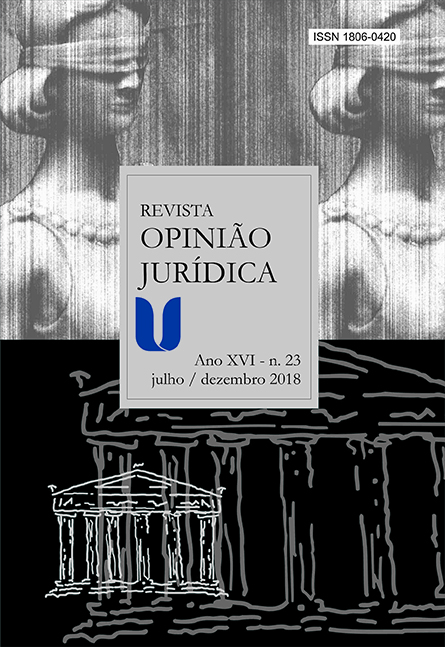O direito à ancestralidade genética versus a prevenção ao abortamento e aos crimes contra os neonatos: análise com base no parto anônimo
DOI:
https://doi.org/10.12662/2447-6641oj.v16i23.p331-347.2018Keywords:
Parto anônimo, Abortamento, Abandono de neonatosAbstract
O parto anônimo se trata da liberalidade atribuída à gestante de garantir o seu anonimato ao dar a luz a uma criança e colocá-la para a adoção, esquivando-se de qualquer dever ou direito sobre o seu descendente, de modo imediato, sem identificação da genitora. É instituto adotado em alguns países, mas não o é no Brasil. O presente artigo destinou-se a verificar a compatibilidade do parto anônimo com o ordenamento jurídico brasileiro, a fim de avaliar se é uma solução louvável e eficaz para evitar ou diminuir os casos de abortamento e crimes contra os neonatos, já que preserva a identidade da genitora. Para tanto, utilizou-se o método de estudo qualitativo, por meio de observação, colheita e análise de dados bibliográficos e documentais; o método indutivo-dedutivo e os métodos hermenêuticos teleológico, sistemático e sociológico.
Published
How to Cite
Issue
Section
License
CESSION OF COPYRIGHTS
The submission of articles to analysis for publication on Opinião Jurídica implies the author(s) transfers copyrights to Centro Universitário Christus – UNICHRISTUS for reproduction, publicizing, distribution, printing and publication, according to the Publication Norm 414R, Opin. Jur., Fortaleza, year 12, n. 16, p.1-414, Jan./Dec. 2014, costs to be bore by UNICHRISTUS, in whatever format or means that may or shall exist, in accordance to articles 49 and following of Federal Law 9.610/98.
1. In ceding copyrights, the author(s) agrees to do so in exclusivity, free of charge and for the totality of the work.
2. UNICHRISTUS may make the work, in its entirety or in parts, available for scholarly purposes, without altering its contents, except for small corrections that are deemed necessary.
3. The cession of copyrights is valid in all countries and for versions of the material in its original language or translated into a foreign language.
RESPONSIBILITY FOR THE CONTENT
By submitting an article, the author(s) declare to have sole responsibility for the content of the piece and is(are), therefore, responsible for any judicial or extrajudicial measures referring to it.
1. In case of joint authorship, all authors are considered collectively responsible, except when proved otherwise.



















